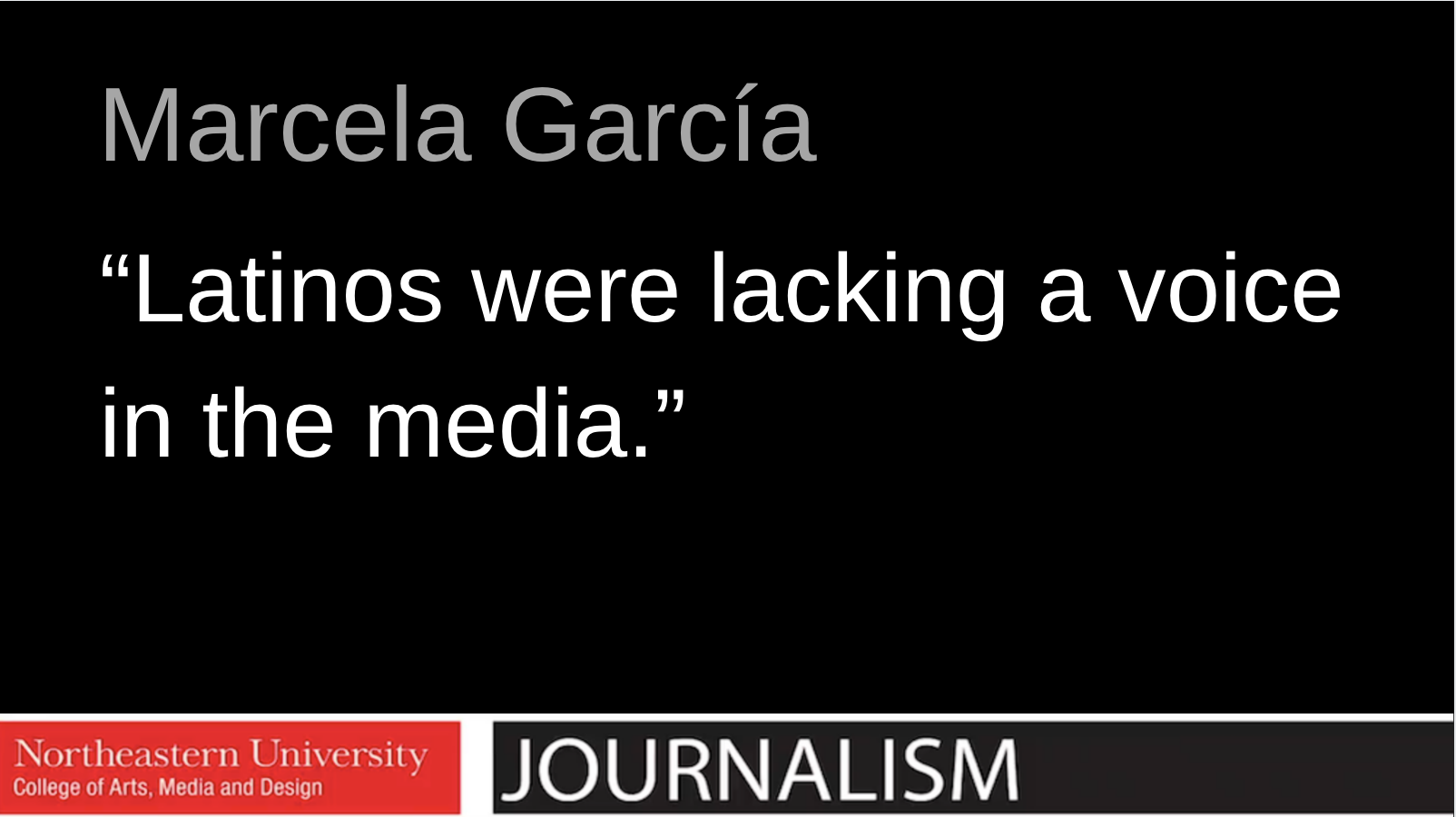Tips on writing editorials from the Boston Globe’s Marcela García
To speak for people requires bravery. Marcela García, the first and only Latina member of the Globe’s editorial board, strongly believes journalists need a sense of conviction. A writer should be the first one to believe in what he or she is saying, she recently told students at Northeastern’s School of Journalism.
García grew up in Monterrey, México and after getting a graduate degree at Harvard Extension School, landed her first journalism job at El Planeta, Boston’s Latino Daily. She quickly found herself representing Boston’s Latino community. Though that wasn’t the job she thought she was meant to perform as a journalist, she realized it was a chance to get closer to the community. “They were lacking a voice in the media,” she said.
García’s efforts soon drew the attention of the Boston Globe and she was recruited to represent the immigrant community on the paper’s editorial board. García never thought of herself as an opinion writer but after years doing it, she no longer has any reservations.
García describes editorials as comments that always need a call to action. For example, mentioning which policy should change and why. This should drive the reader to pursue some change even if it is just changing their mindset.
Sometimes this requires taking a strong, emotional position. She confesses that there are stories that require more courage than others because emotions play a role in the job which so often touches issues that directly affect people’s lives and highlights the injustices around them. For García, personally, it can get tough when writing about border stories that involve Mexican families.
Finally, she advised journalism students to read as the best training. She started at a young age and hasn’t stopped. Readings include fiction and, of course, news sources. Media professionals need to be aware of what is happening around them, globally and locally. Besides, an opinion writer needs to be constantly finding stories. How better than to read far and wide?
García’s final takeaway? Just go for it. Opinion writers need to believe in what they do and be outrageous. If she could go back in time and re-do her first pieces, she would have done things differently, she admits. Luckily, she realized this quickly and began taking more risks early on.
- How Paraguay’s El Surti is adapting to the age of Covid-19, boosting its fact-checking on Whatsapp and launching a new podcast - May 20, 2020
- What the Covid-19 pandemic looks like through the lenses of 18 Latin American photographers - April 3, 2020
- The challenging — and delicious — adventures of producing the first America’s Test Kitchen podcast - February 13, 2020





